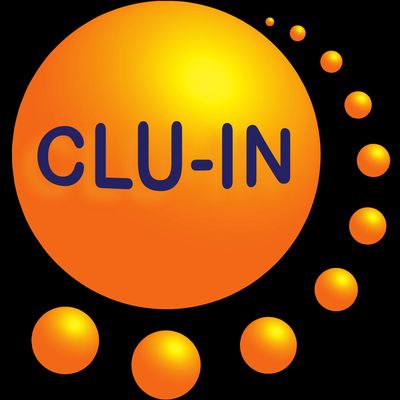Since 1998, The Contaminated Site Clean-Up Information (CLU-IN) website has presented Internet Seminars covering a wide variety of technical topics related to hazardous waste characterization, monitoring, and remediation. For select seminar topics offered since 2012, we are making complete video recordings available through our archives. This feed contains all video seminars archived in the last 12 months. For a complete list of seminars archived since 2000, please visit http://www.clu-in.org/live/archive/. Our Rehabilitation Act Notice for reasonable accommodation is available at http://www.clu-in.org/training/accommodation.cfm. CLU-IN was developed by the U.S. Environmental Protection Agency (EPA) but is intended as a forum for all waste remediation stakeholders. For more information and to view upcoming live offerings, please visit http://www.clu-in.org/live/. For a complete list of RSS feeds available on CLU-IN, please visit http://www.clu-in.org/rss/about/.
http://www.clu-in.org/live/archive
Biogeochemical Interactions Affecting Bioavailability for in Situ Remediation: Session III - Mercury Bioremediation and Biotransformation Under Varying Biogeochemical Conditions (May 20, 2019)
This webinar series will feature individual research projects funded by the NIEHS Superfund Research Program (SRP). In 2013, the SRP initiated a targeted research program to better understand how contaminants in the environment are affected by complex biological, geological, and chemical processes. By understanding these complex interactions, we are better equipped to optimize remediation strategies and, therefore, improve science-based decision making for site management, priority-setting, and remedy selection. The individual research project grants support problem-solving research on the mechanisms of biogeochemical interactions that may impact remediation of contaminated soil, sediment, surface water, or groundwater. In session 3, we will hear from SRP-funded individual research projects at Duke University and University of Maryland-Baltimore County. At Duke University, scientists led by Heileen Hsu-Kim, Ph.D., are studying sediment dwelling microorganisms that methylate mercury, and identifying factors that may be used to control and reduce toxic methylmercury production. The research is focusing on strategies to measure mercury bioavailability and biomethylation potential in sediments. Their work has demonstrated that passive samplers such as diffusive gradient in thin-films (DGT) can be used to predict the bioavailable fraction of mercury to methylating organisms. The work also evaluated biomolecular techniques targeting microbes carrying the hgcA and hgcB genes specific for mercury methylation. Together, these methods can be used to determine mercury biomethylation potential in sediments and help site managers understand the controlling factors leading to methylmercury risk at field sites. For more information, please visit: Biogeochemical Framework to Evaluate Mercury Methylation Potential During in-situ Remediation of Contaminated Sediments At the University of Maryland Baltimore County, Upal Ghosh, Ph.D., leads a research team to develop an empirical model of the factors influencing mercury and methylmercury bioavailability in contaminated areas. Using this model, they plan to identify biogeochemical characteristics that make sites suitable for remediation with sorbent remediation approaches, such as activated carbon amendments. The researchers will also design sorbent amendment/thin capping strategies that reduce methylmercury bioavailability. The main study site is a salt marsh in Berry's Creek, N.J., where they are conducting a field trial of in situ sorbent remediation using activated carbon and also evaluating the relative efficacy of a wider range of black carbons. For more information, please visit: Development of in-situ Mercury Remediation Approaches Based on Methylmercury Bioavailability To view this archive online or download the slides associated with this seminar, please visit http://www.clu-in.org/conf/tio/SRPPIR11_052019/
